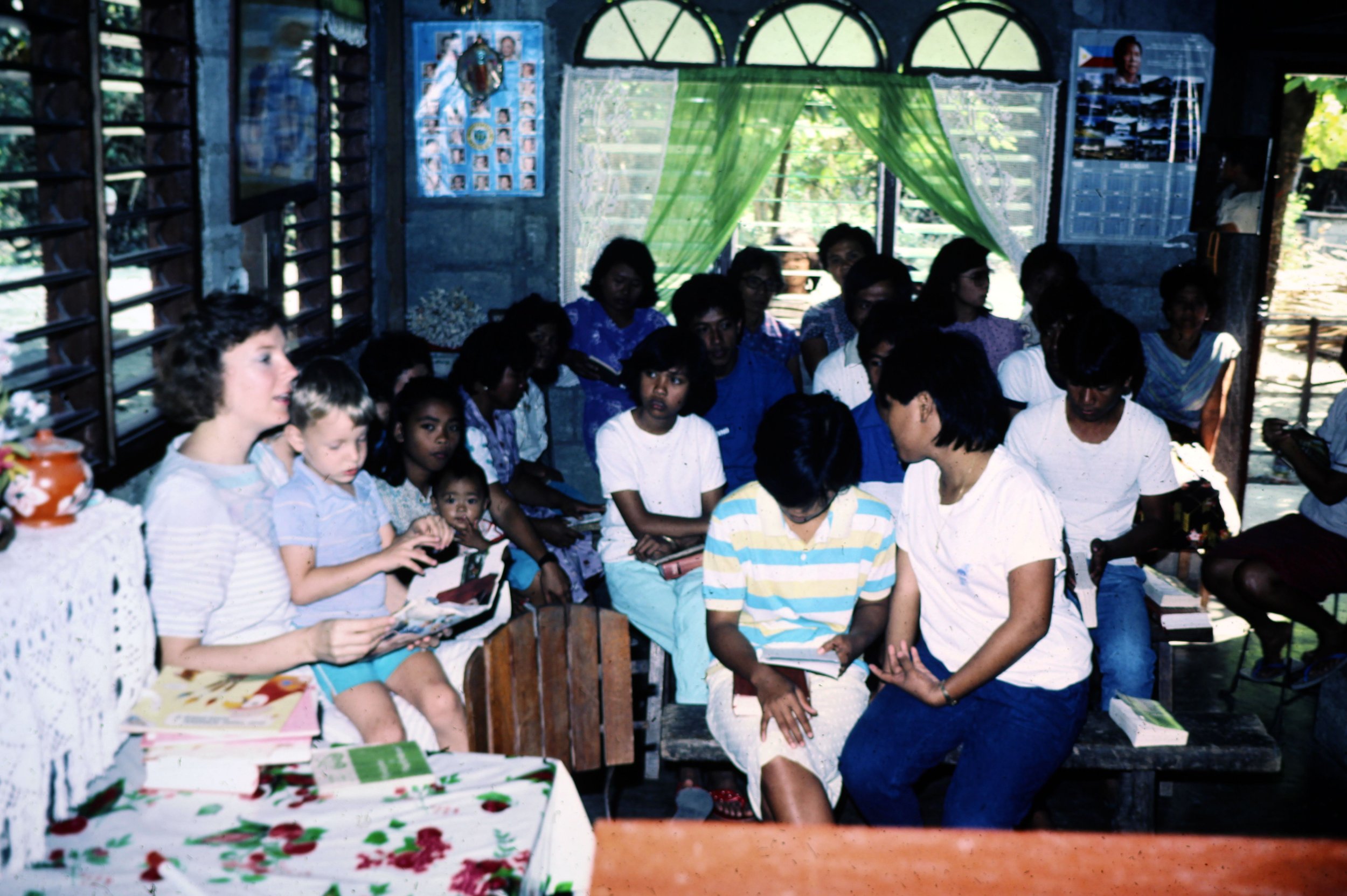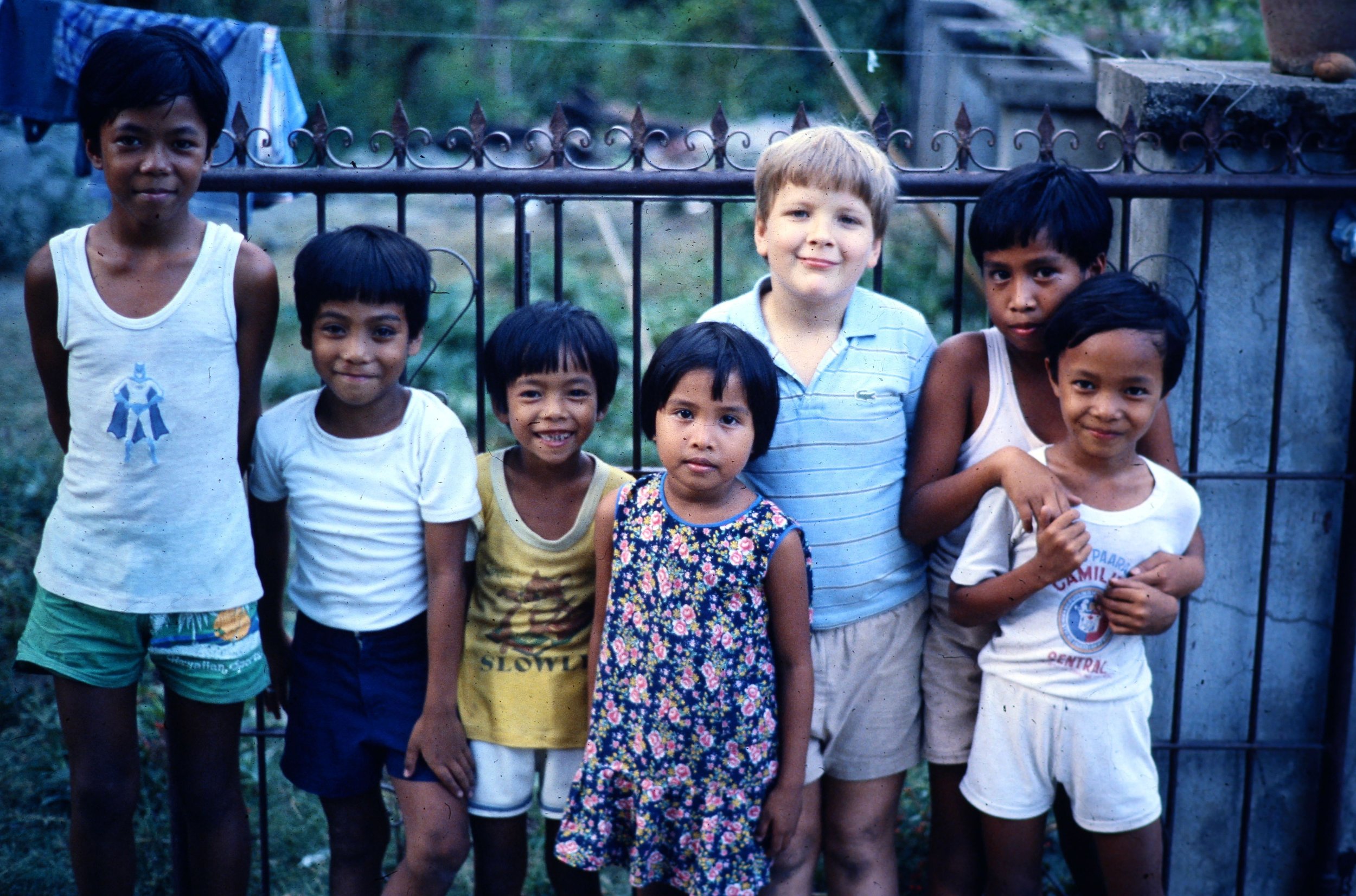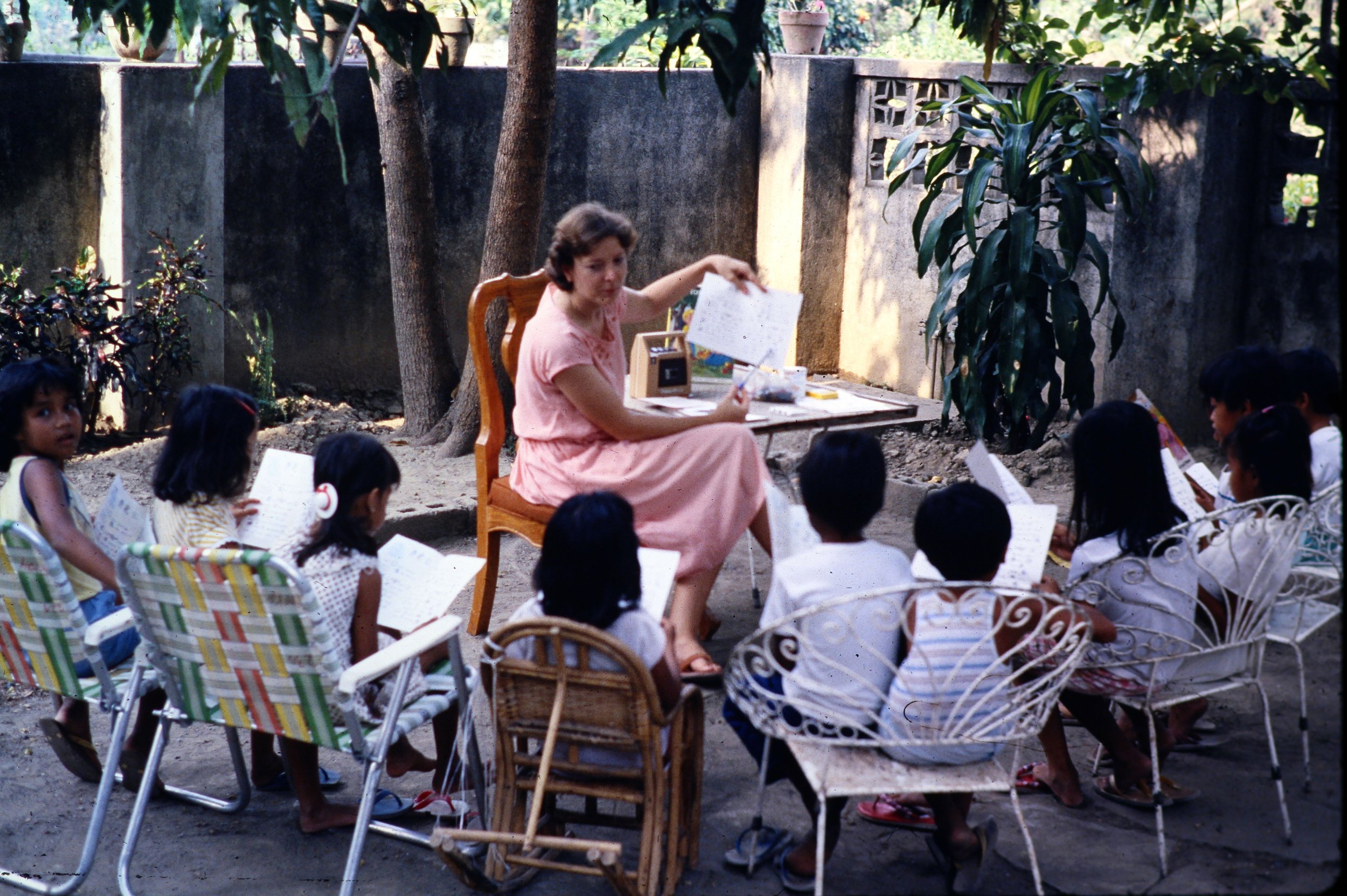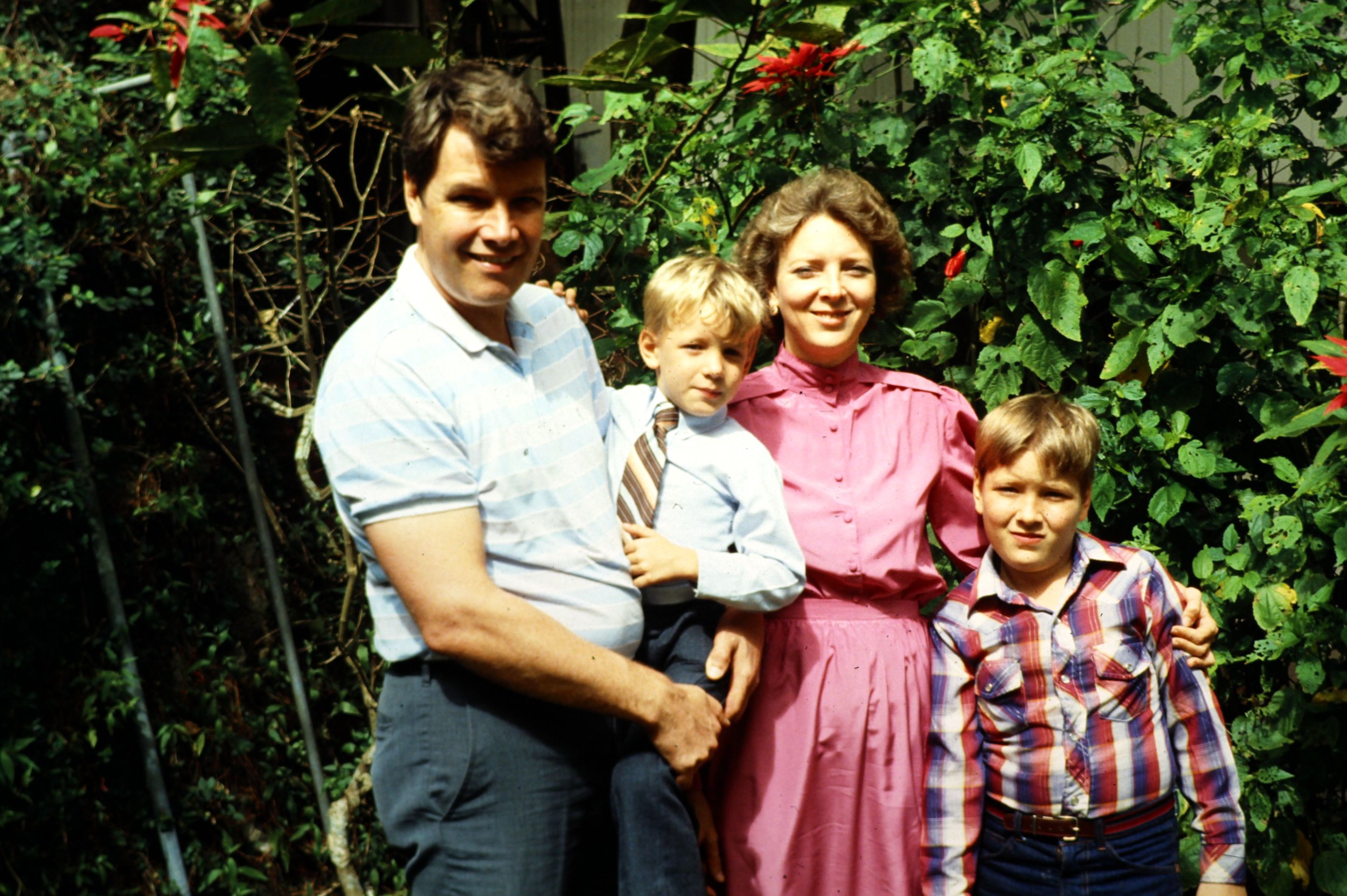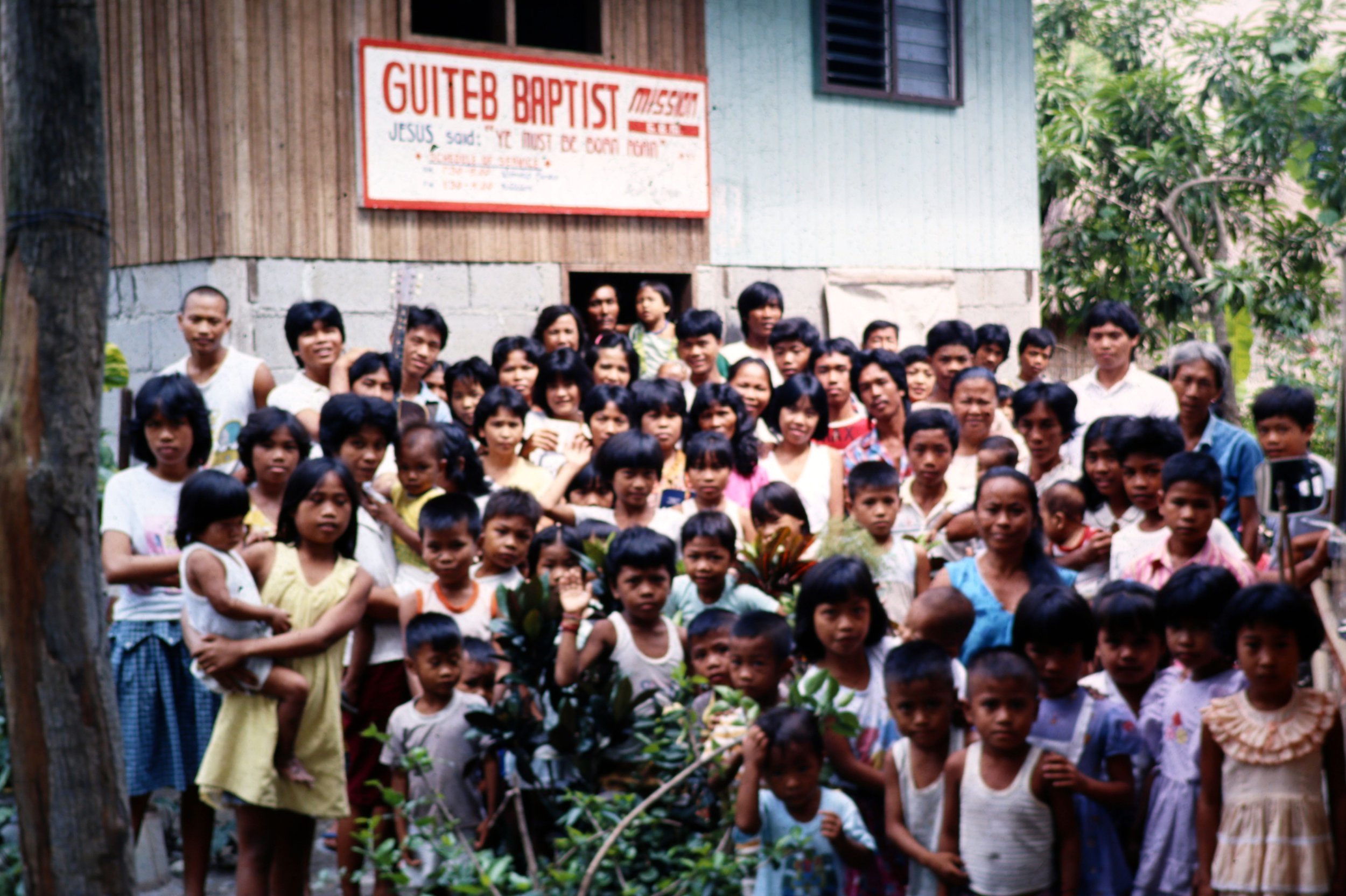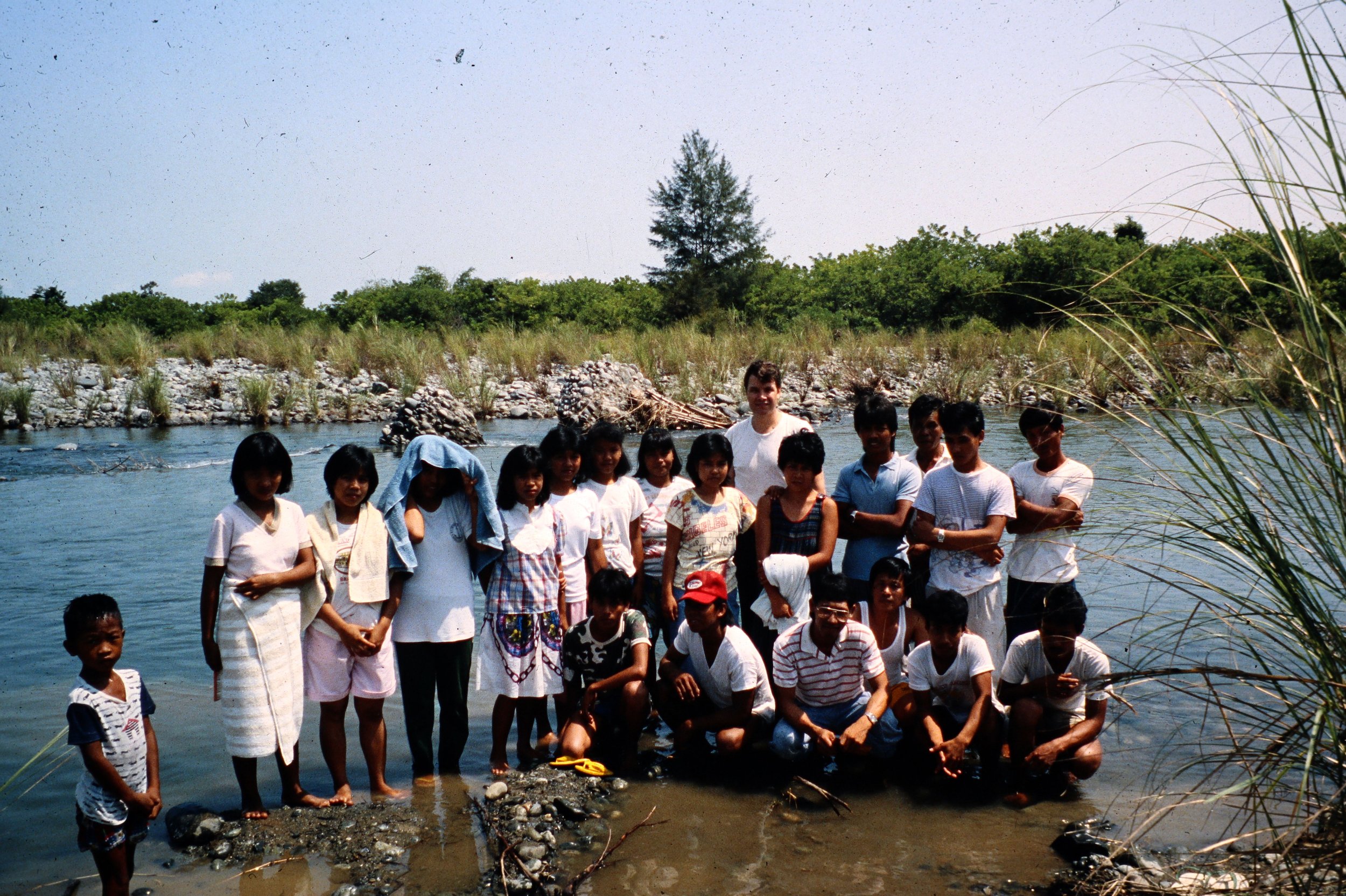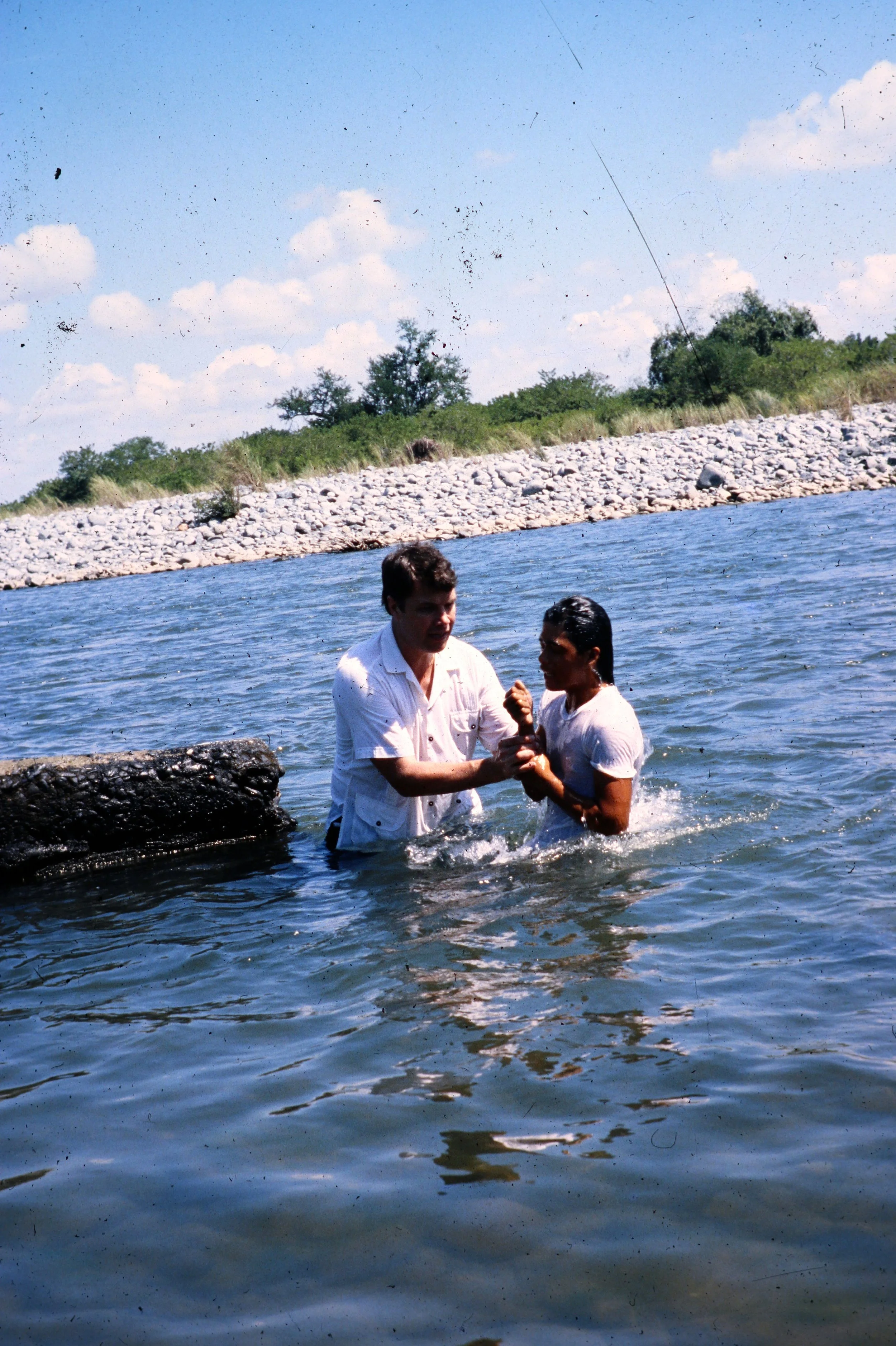A Compelling Call
Photos provided by Roy McKay
The story of every missionary begins with a call, and certainly, ours did. Although my grandparents were missionaries in Africa for 42 years, a call to missions is not passed down from grandparents or parents any more than a call to salvation is. My wife, Marcia, and I had been married six years. I had recently graduated from seminary and had been pastoring my second church, Madden Baptist Church in Leake County, MS, for three years. During a discipleship study at another church on the Great Commission in Matthew 28:18-20, the leader challenged us "to ask God if we were called to missions." After several days of prayer and Bible study, I was certain God was calling me, so I told Marcia. And she said, "God called me when I was a teenager."
How does a person know for sure of a "call" to missions? I understand what some mean when they say, "Everyone is called to be a missionary." Yes, in a sense, that is true. All four gospels plus the book of Acts have their own version of the Great Commission. For example, our pastor has just finished preaching a series of sermons called "Sent," taken from the Gospel of John. John's version is recorded in John 20:21, "As the Father has sent me, so send I you." Therefore, all of us as believers are sent on a mission to share the gospel with others. If a Christian is willing to be obedient where he is, then certainly through step-by-step growth in Christian discipleship, he could be called to share the gospel with other peoples and language groups.
The word mission comes from Latin and means "the act of sending." A missionary is "one who is sent." A person should not go on a mission unless he is sure God is sending him because being sent is more than just an individual's decision. Confirmation should come through Bible study, prayer, and a church congregation that believes the person is being called to missions. Then, the call should be re-confirmed through a mission sending agency. A person has to be absolutely certain God is sending him or her, or they should not go.
In addition, Scripture plainly teaches that there is a specific calling to a long-term, cross-cultural sharing of the gospel with those not of one's own home culture and language. Ephesians 4:11 says, "He personally gave some to be apostles, some prophets, some evangelists, some pastors and teachers..." The word apostle means "one who is sent." In Acts 13:2-3, the Holy Spirit told the church at Antioch to "set apart for me Barnabas and Saul for the work I have called them to. Then, after they had fasted, prayed, and laid hands on them, they sent them out."
The church I had been pastor of at the time confirmed this, and then we contacted the International Mission Board (IMB) and began an extensive application process. The confirmation of our call through the IMB was organized and took only nine months for us. We started by writing out our salvation experiences and our separate calls to missions, then submitted to an extensive personal interview process in Richmond, VA that lasted several days. We defended our salvation experience and our sense of a call to missions to a committee. We went through very thorough physical and psychological exams and then finally, in October 1983, we were commissioned as missionaries by the IMB. After our appointment, we went to a six-week orientation for missionaries at the IMB's Missionary Learning Center, where we met many long-term missionaries and heard their stories. We received wonderful training in adjusting to a different culture and learning a new language. This training was a great advantage to us.
Because of our contacts with missionaries and our research, we sensed a call to the Philippines. After a few months of waiting for visas, we arrived in the Philippines in August 1984. I'm amazed when I think of how young Marcia and I were, with our two sons being only five and two years old. We knew, of course, it would take quite a commitment to leave everything familiar and be willing to adjust to a new and unique experience. It's tough to explain what it's like until you've done it. As one of our missionary colleagues would say, "You can't understand what it's like until you see it, hear it, smell it, taste it, and step in it." Even so, the hardest part, for sure, was leaving family and friends. Taking our children away from grandparents was especially difficult.
We learned to speak one of the more than forty Filipino languages called Ilocano ("ill-lo-kano"). During our time at the IMB Missionary Learning Center, we were trained using "Barefoot Language Learning," which was the most helpful of all the things we learned. The language learning process involved hiring a language tutor who would teach us simple phrases which we would learn and then repeat to eight or ten people that we would meet at the local market. For example, I started by saying (in Ilocano, of course), "Hello, my name is Roy, that's all I can say, goodbye." We got a lot of laughs, it was great fun, and it was a wonderful way to meet people. In the cultural setting of the Philippines, it worked great for us. After about a year and a half, I could speak the language fluently and began to learn to preach in it.
The Ilocano region of the Philippines covers the northern-most provinces. The Philippine Baptist Mission assigned us to plant churches in Tarlac Province, and we lived in the small town of Camiling. We were able to rent a large, two-story house with big windows from Isabelita Aquino, our barangay captain (similar to a city alderman). She moved into a bamboo house next door to rent us her home. We already had over a year of language learning behind us, so we began to make friends almost immediately. We learned that the Filipino people are friendly and open to Americans and that many wanted to help us adjust and feel comfortable. Our boys were our best introduction because everyone was curious about them and seemed to want to know who we were. We were invited to many family events like weddings, birthdays, and anniversaries simply because we were the only American family in town.
I quickly realized that I needed someone to help me if I was to make any progress in the work I was called to. I met a young man named Ireneo ("Rene") Hubay, who became my steady companion. He seemed eager to go with me to the surrounding barrios to begin making contacts, and as a local man, he made the way smoother for me. We hired his wife, Gina, to help Marcia at home. Gina was a great help with household chores, especially in shopping for food in the local market. There was so much to do and to adjust to. For example, the meat in the market was freshly killed, hanging on hooks, and not prepared to our standards. (Remember, we were in the tropics). I've told many people that going to a Kroger here and having clean, chilled, and freshly wrapped meat is one of life's great blessings.
Rene and I began by contacting each barrio's captain, then asking to have a Bible study in their homes. Most Filipinos were very open to this idea. They were traditionally Catholic on a mostly surface level, but many had never read or studied the Bible. At least they did have some understanding of who God is and what Jesus had done, which was a great help. In our Bible study, we would ask them to invite their friends and family and provide the refreshments. We would bring copies of the Gospel of John and a Bible study guide in their language, enough for each person. When starting a church, the idea was never to do anything for them that they could do for themselves because the way a church is started is the way it will need to continue. We wanted the Filipinos to be trained from the beginning that it was their church and that they would be responsible for it, even before anyone even made a commitment to Christ. Usually, we would have one or two Bible studies each day, and we would be working in three or four barrios each week.
We used a straightforward, six-week lesson plan called "Good News for You," written by Charles Brock, a long-term missionary. Each lesson was from the Gospel of John. Those who came would read a Scripture text, and then we asked them to answer simple questions. For example, after reading John 3:19-20, we asked the participants, "Why do some people prefer to live in darkness (sin)?" After discussion, someone would say, "People love darkness rather than the light because their deeds were evil." In another lesson, after they read John 3:16, we asked them, "What did God do to show his love for sinners?" and of course, their answer was, "He gave his only begotten Son."
After six weeks of simple Bible study lessons, everyone who attended understood the gospel message clearly. So, we would challenge them to ask Jesus to save them using the simple "ABC's" of salvation. Admit you are a sinner. Believe in Jesus Christ as Savior. Confess your sins to God by inviting Jesus to be your Savior and Lord. On most occasions, about half to three-fourths of those attending the Bible studies received Jesus as Savior and Lord. Then, we would follow up with a series of lessons entitled "Born Again, What Next?" The follow-up lessons verified their faith commitment, taught them the basics of spiritual growth, challenged them to be scripturally baptized, emphasized the importance of a quiet time, and led them to begin forming a church.
The church meetings were usually held in someone's house, which in the barrio meant a bamboo house with a dirt floor. Typically, the place was crammed with people, and it was open-air, so sometimes, children, dogs, and even chickens would join the worship service. Someone provided us with the place, the chairs, and the refreshments, and we would lead the worship service and show them how to do it.
The worship services were quite simple, with someone leading songs or choruses with a guitar, and then one of us would bring the message, which was usually about something very basic. I had a language tutor named Helen who would help me write out my sermons in Ilocano and listen to me practice reading them. After some months of leading a Bible study, we would pray that God would call someone from that community to lead the group. After a while, a specific person would stand out to us as being the leader. Then, I would begin focusing my attention on that person, teaching them week by week how to study the Bible and lead a group Bible study. After six months to a year, that person felt ready and comfortable to take full responsibility for the new church, and Rene and I could go to the next barrio.
I remember so well one such leader that I trained named Romeo Estabillio. He had been involved in an ongoing insurrectionist movement in the Philippines called the New Peoples Army. However, upon hearing the gospel, he repented of his sins, received Christ as Savior, and became a completely different person. In a barrio called Bubon, he became the leader. He watched me lead the worship and bring a message for a while. Then, as I met with him every week, I taught him the scripture and showed him how to study the Bible and prepare a message. After about two months, he said, "I think I can do it now." I would still meet and teach him, but he would lead the worship service and bring the message. He was a fast learner and a natural leader and became the first pastor of that church.
We continued doing this for about three years and planted approximately one church per year, and as far as I know, they still exist. During that time, Marcia spent most of her time taking care of our boys and keeping things going at home. She taught Josh in Kindergarten through 4th grade and led Bible studies at our home for women and children. We had many more experiences and many more things that we did, which I don't have the room to write about now. After four years in the Philippines, while on home leave, we were asked to transfer to Germany and begin work in the old Soviet Union within an unreached group of peoples in Central Asia. We did so, and it was a huge change for us, but that story can wait for another time.



